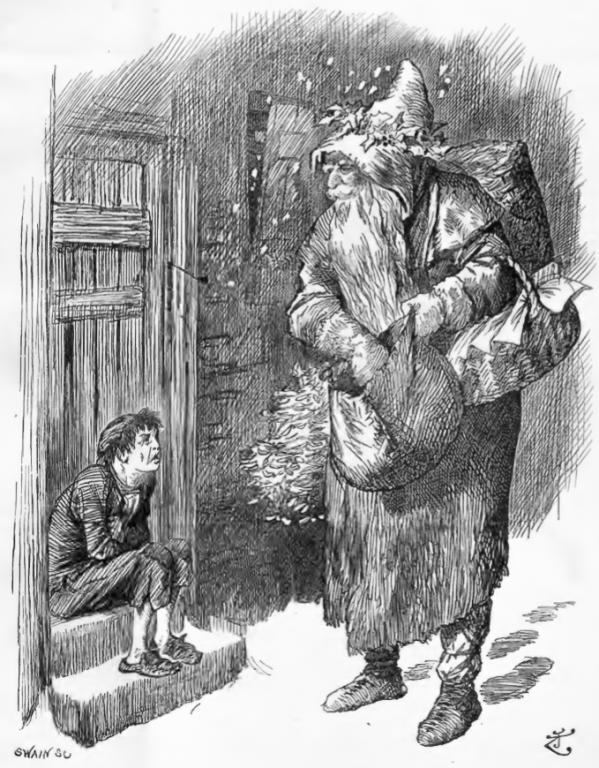David Russell Mosley

Ordinary Time
11 September 2015
The Edge of Elfland
Hudson, New Hampshire
Dear Friends and Family,
As many of you know, I recently finished teaching my first collegiate level class. I taught an online class for a Christian university in the Restoration Movement on the Trinity. In another letter I’ll write about what it was like to teach a class online and what it was like to teach a class on the Trinity. Today, however, I want to focus on my student evaluations in specific and student evaluations in general. The issue is this, most colleges and universities have student evaluations of all or most of their classes and often make decisions based on them. What’s more, when applying for jobs as a lecturer, many colleges/universities want to see past student evaluations. But what exactly do student evaluations show?
My class, to give you some background, was 11 students large at the beginning. One student withdrew from the class during its course leaving me with 10 enrolled students at the end. Of those ten, only three with Christian ministry/theology majors of any sort (a Christian Ministries major, a Preaching major with a deep interest in apologetics, and a Worship major). The majority of my students were majoring in Management of Non-Profit Organizations. All of my students were taking this class because they are required to take an upper level theology class. For various reasons most of them wanted or needed to take one online and mine was the only one on offer.
Now, of my ten students only 3 filled out evaluations. So we’re not really talking about a statistically significant data sample here (though in general statistics is rather imprecise, especially when based on polling, which evaluations essentially are polls). It should be noted that I have not been informed precisely who these students are though I can guess who two of them were. Of those three, 2 students seemed to have appreciated the course. Both consistently agreed or strongly agreed with the various questions they were asked about how well the course was run and how well I did as an instructor. The third student was not as happy about the course.
For most questions, this student would respond with Neutral. So, for instance, when asked “8. A Christian perspective was appropriately integrated into the content and conduct of the course.” They responded with Neutral (from the options Strongly Agree, Agree, Neutral, Disagree, and Strongly Disagree). There non-Neutral responses were either Disagree or Strongly Disagree. For some of these I’m not responsible, like how user friendly they found the website used to host these online classes. That said, they were also either Neutral or Disagreed (Strongly or otherwise) with my performance in the class. In the end, the students were allowed to write some comments of their own. I will not share here precisely what this student said about me, but suffice it to say that I did not come off well (I was called rude and arrogant, for example). Now, I do not deny that I was imperfect in teaching this class. I’ve already thought of things I’m going to change when I teach it again in the Spring. That said, I certainly didn’t deserve, or at least so thought two other members of the class, the vitriol poured on me by this student. And herein lies the problem with student evaluations. They are often representative of how well a student did in a class compared with how well they believe they should have done.
I have some guesses about who this student is that would shed even more light on this subject, but I feel that would be inappropriate to share. However, when a class is difficult, and there’s no denying that a class based primarily around ancient and medieval texts on the Trinity is going to be a difficult class, that difficulty can be seen as a flaw with the class. So the problem is we’re trusting students to be objective, to put aside how well they did in a class in order to properly evaluate it. This is probably less of a problem for the student who does well, they may be able to remove themselves from the grade they earned and reflect on the class, but for the student who does poorly this is going to be more difficult. So the question then becomes, what do student evaluations actually teach us? There is of course a chance that they might teach us things we really ought to change about a class, but that is not, at the very least, my experience with this class. Neither the students happy with the class nor the student unhappy with it provided any feedback that will actually change how I teach this class again.
Perhaps, then, we ought to do away with the typical style of class evaluation (a series of questions/statements one can gauge one’s opinion on using some kind of scale). Perhaps we ought to try different methods, or at least insert different questions. Lecturers/Professors aren’t meant to know who wrote what, this is meant to allow the students freedom to express themselves fully. However, for those who review these evaluations, perhaps questions ought to be inserted about how well a student did in the course and why they think they faired the way they did. This, it seems to me, ought to force the students to think at least somewhat introspectively and ought to provide those reading the evaluations some insight into why a student might have evaluated the class the way they did. Outside of these suggestions, I don’t really know how to fix the problem. Hopefully some of you who have been teaching longer than I have will have suggestions. In the mean time I need to move on and not get too wrapped up in one bad evaluation from one student and prepare myself for the next time I teach.
Yours,
David











